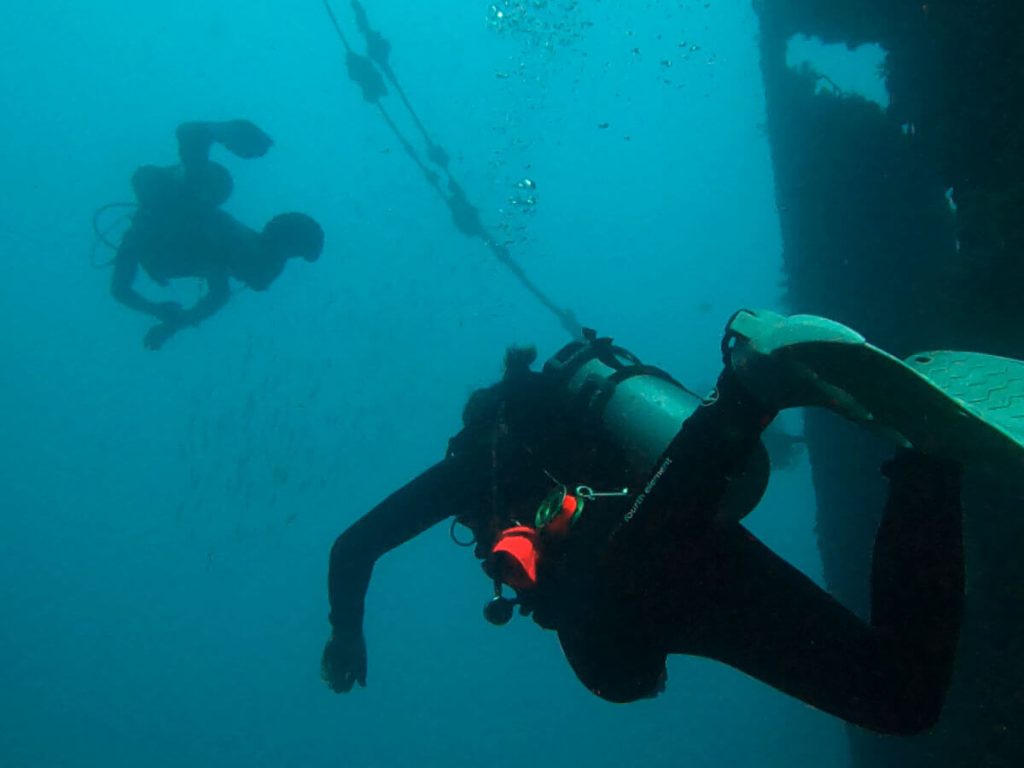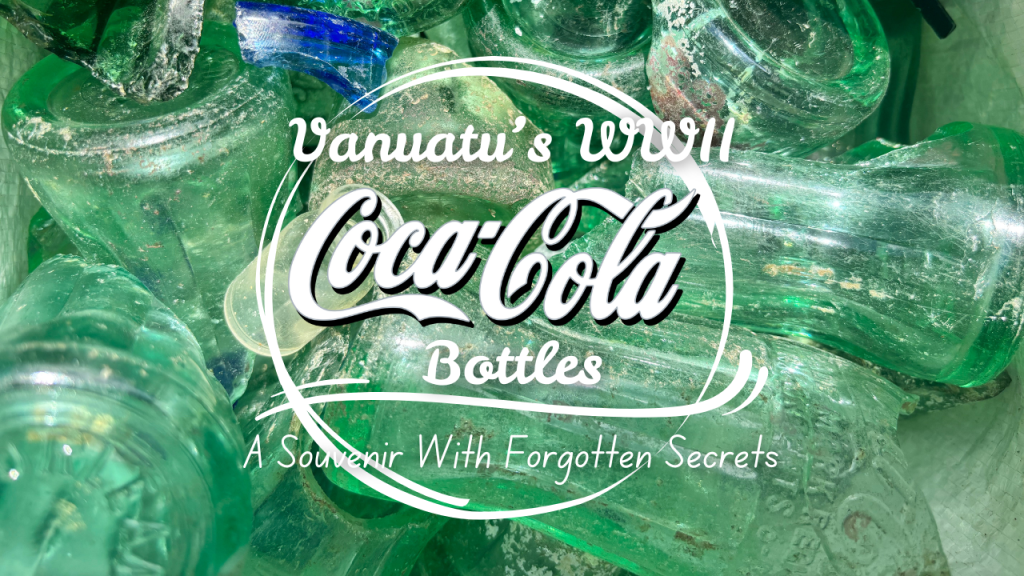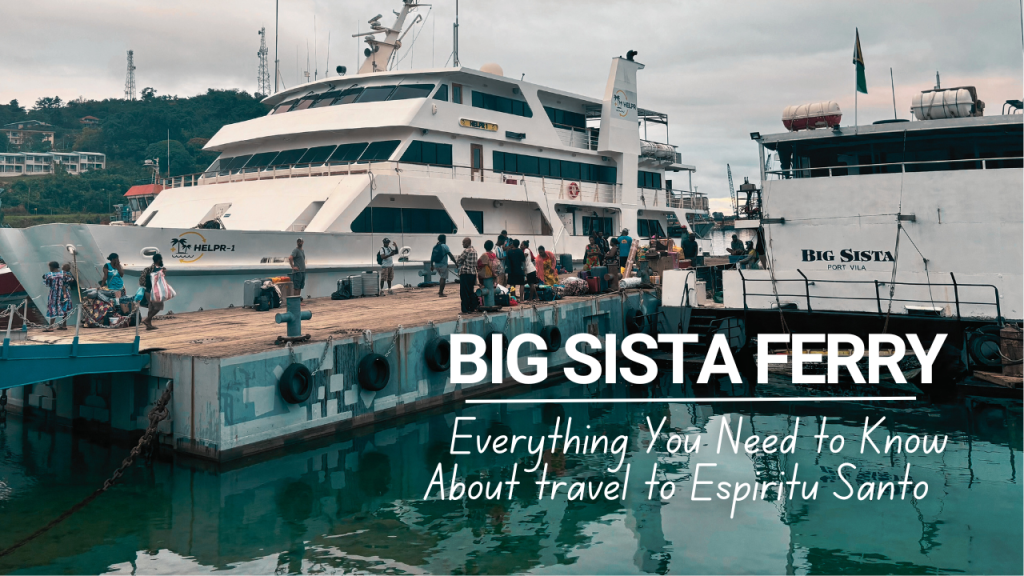Situated off the Coast of Vanuatu’s largest Island of Espiritu Santo is one of the South Pacific’s greatest Shipwrecks, the S.S. President Coolidge.
But how did this magnificent feat of engineering end up at the bottom of the ocean and what was her fascinating history leading up to her sinking? Read on to find out!
Commission of The S.S. President Sisters
Commissioned: By the dollar steamship company in 1929 with her sister ship, the SS President Hoover. Named after the 30th and 31st president of the United States, Calvin Coolidge and Herbert Hoover.
Christened: On the 21st February 1931 the former presidents wife Grace Coolidge christened the ship with a bottle of water from the Black River (which ran through their farmland) instead of the customary champagne due to prohibition.
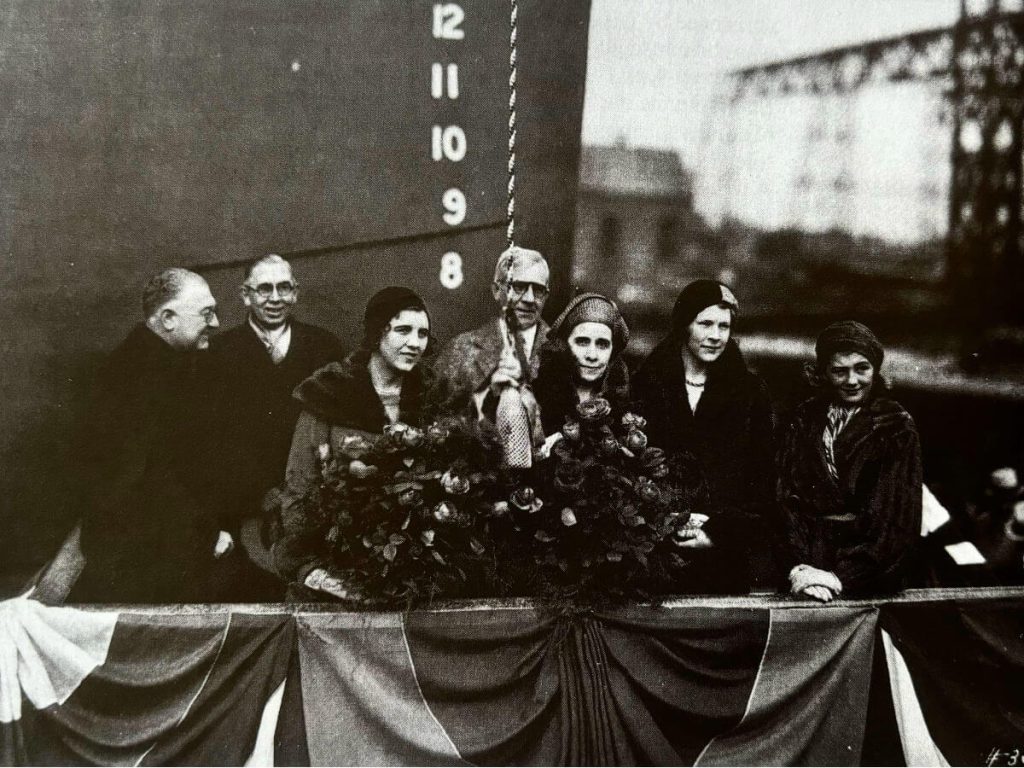
Completed: September 10th 1932
Cost: $7 million (equivalent to $130 million today)
Dimensions: At the time the Coolidge and Hoover were the largest merchant ships built in the US. Measuring at 654ft long, 81ft In Beam (at widest point), depth 34ft and weighing 21,936 tons gross.
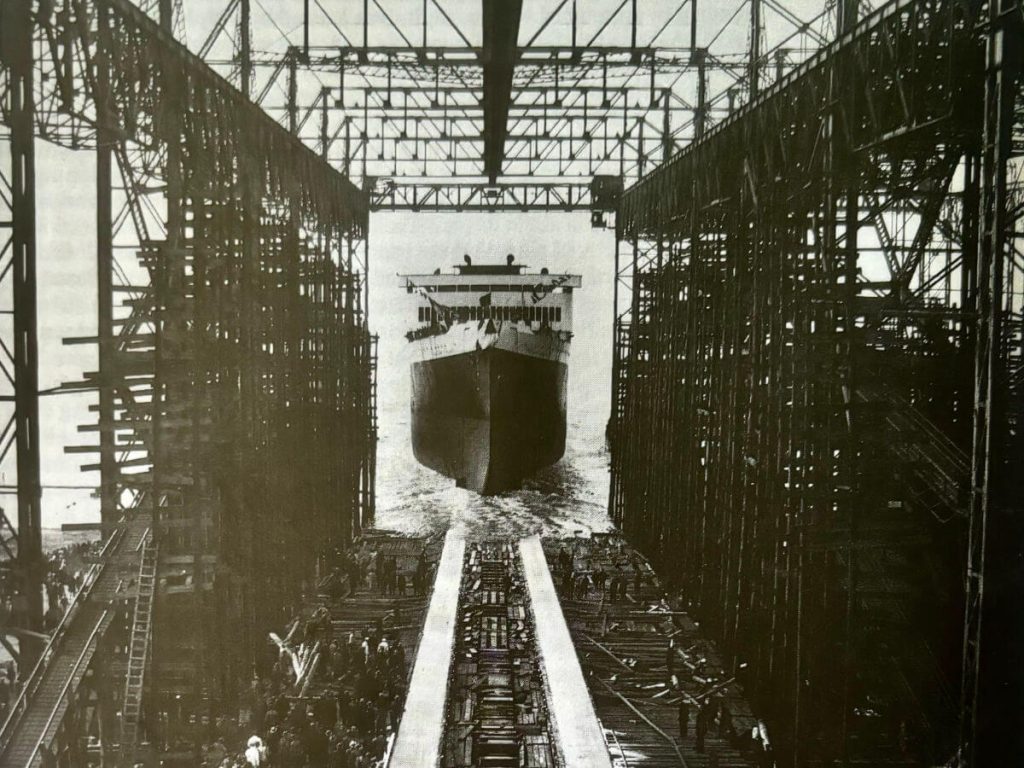
Cruising With The S.S. President Coolidge
Operating out of San Fransisco the two state of the art Steam Ships, President Coolidge and Hoover, took passengers from North America on cruises to the far east and occasionally around the world. Breaking several speed records for crossing the Pacific and becoming the most profitable ships on the line, despite the depression.
Furnished to the same level as the finest hotels at the time, passengers had the luxury of two beautiful mosaic saltwater pools (with an artificial sand beach), gym, beauty parlor, barber, cinema, stock exchange and even ‘air conditioning’ throughout. The first class cabins fitted with telephones and many special class cabins with en-suite bathrooms.
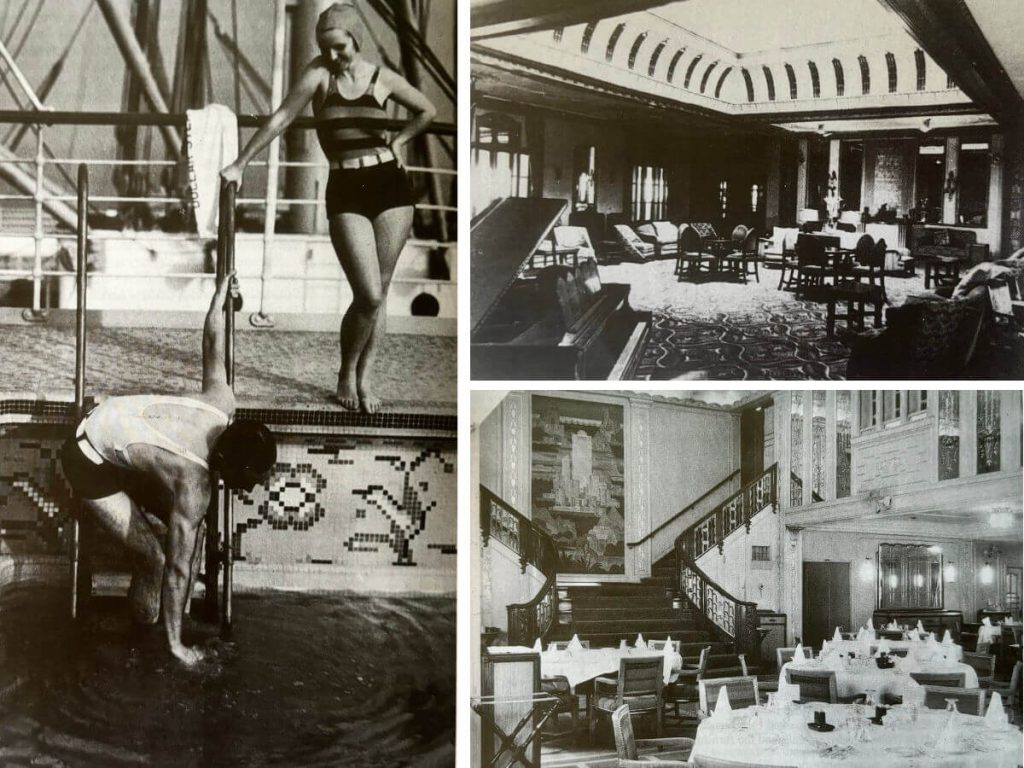
Sinking of the S.S. President Hoover
However the sisters would soon be parted forever as escalating conflict between China and Japan in 1937 forced the usual route to bypass Shanghai.
So on 11th December, whist trying to navigate from Kobe to Manila in bad weather, the SS President Hoover ran aground off the North East Coast of Taiwan and was later declared a complete loss.
Due to this disaster and other debts it was not long afterwards the Dollar Steamship Line Inc. became insolvent and was taken over by the US government. Just in time for world war two to break out. So in the years of 1939-1941 the S.S. President Coolidge (along with other passenger liners) was put to work evacuating American Citizens from Asia and transporting the Army.
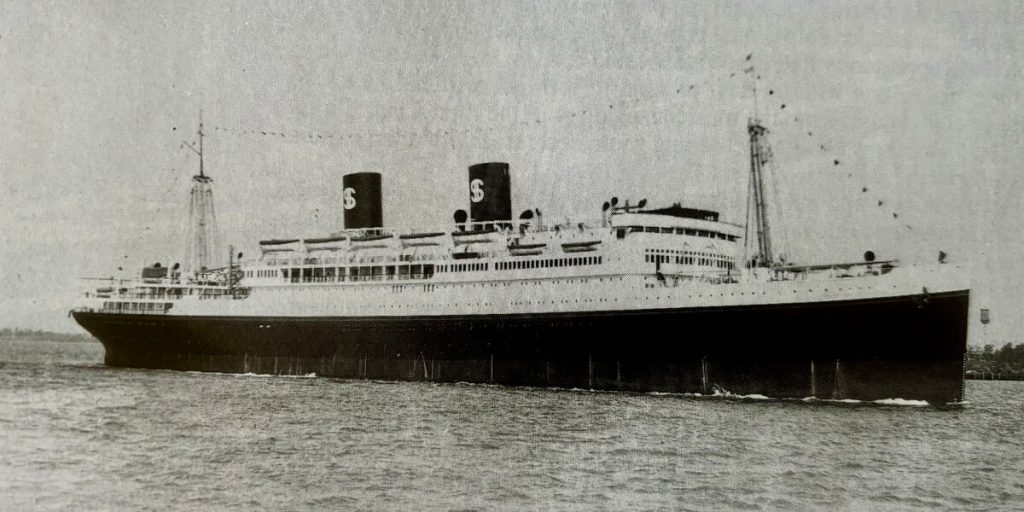
Recommission of The S.S. President Coolidge
It was only until after the attack on Pearl Harbor and America officially entering the war in December 1941, that the S.S. President Coolidge was refitted and repainted navy grey.
Defensive armament was attached to the decks and most decorative features removed for safe keeping or boarded over for protection (like the lady and the unicorn). Thus transforming her from a luxury cruise liner catering to 988 passengers and 385 crew into a transport for over 5000 soldiers and supplies.
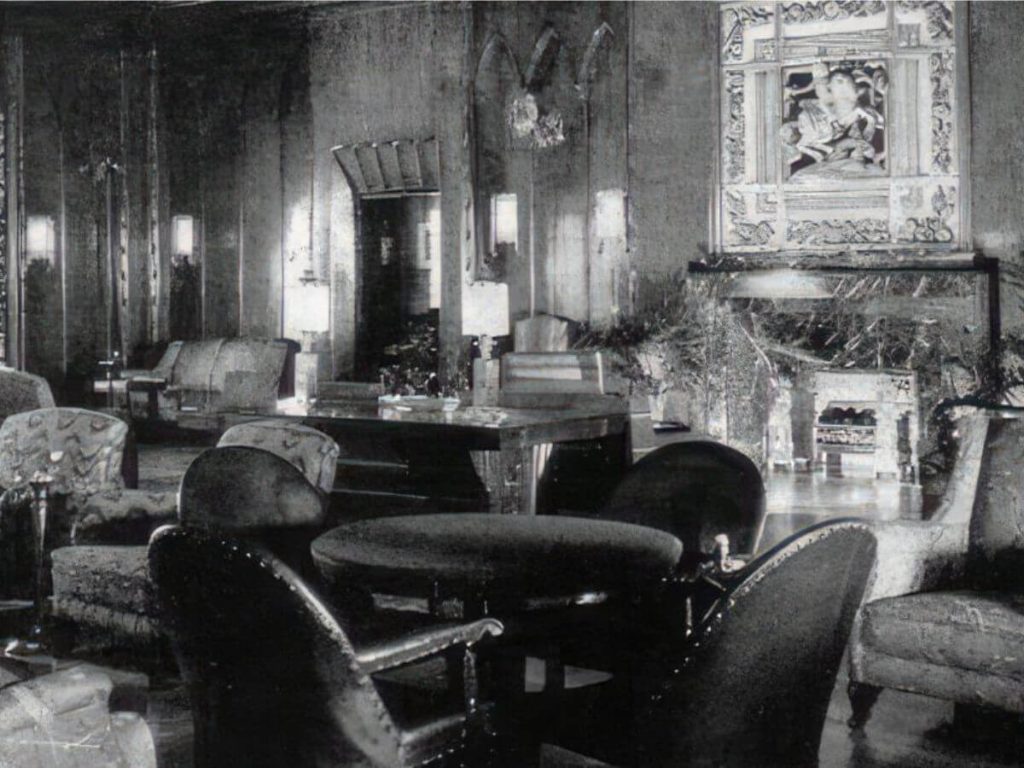
Striking of The S.S. President Coolidge
That is until receiving instructions to sail from her stop in Noumea, New Caledonia on to the military base in Espiritu Santo. Instructions which detailed the route and warned of enemy submarines lurking near the entrance to the islands Chanel’s, but mentioned nothing of the newly laid mines.
So under cover of darkness the S.S. President Coolidge steamed ahead, carrying 12,000 tons of government cargo including winter uniforms, trucks, jeeps, guns and ammunition as well as 268 kilos of quinine (used to treat malaria) which was the entire US stock at the time.
And in the morning hours of 26th October 1942, speeding to avoid the threat of submarines, ran straight into the far more fatal minefield in the Eastern channel of Espiritu Santo. At 0930 receiving the S-T-O-P signal from shore she put her engines in full reverse but was too late.
Five minutes later she was struck, the first mine detonating near her engine room, killing fireman Robert Reid instantly on impact, and the second mine hitting her stern.
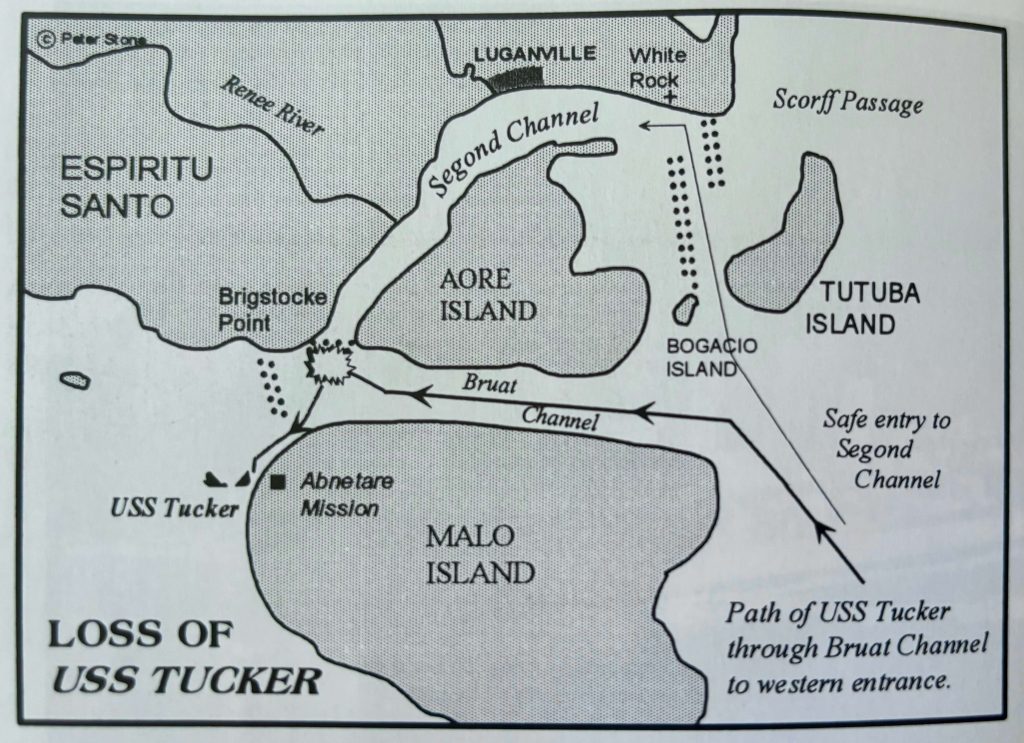
Sinking of The S.S. President Coolidge
In an attempt to save his men and ship, Captain Henry Nelson ran the S.S. President Coolidge aground but was not able to beach her due to the reef. Over the next 90 minutes 5340 men onboard clambered down ropes and nets, swimming and wading the short distance to shore as the ship began to list.
Only, upon hearing there were men still stuck in the infirmary, Captain Elwood Joseph Euart returned to perform a rescue. He managed to hold a rope so the troops could climb out but by the time it was his turn the ship had begun to slide into the channel. Captain Euart sank with the ship, becoming the second and last casualty. The two men trying to pull him out being sucked below but managing to get out.
Euarts body was eventually discovered by local dive guides in deep silt at the bottom of the wreck in 2013 and after 73 years was recovered with dog tags and personal effects still intact.
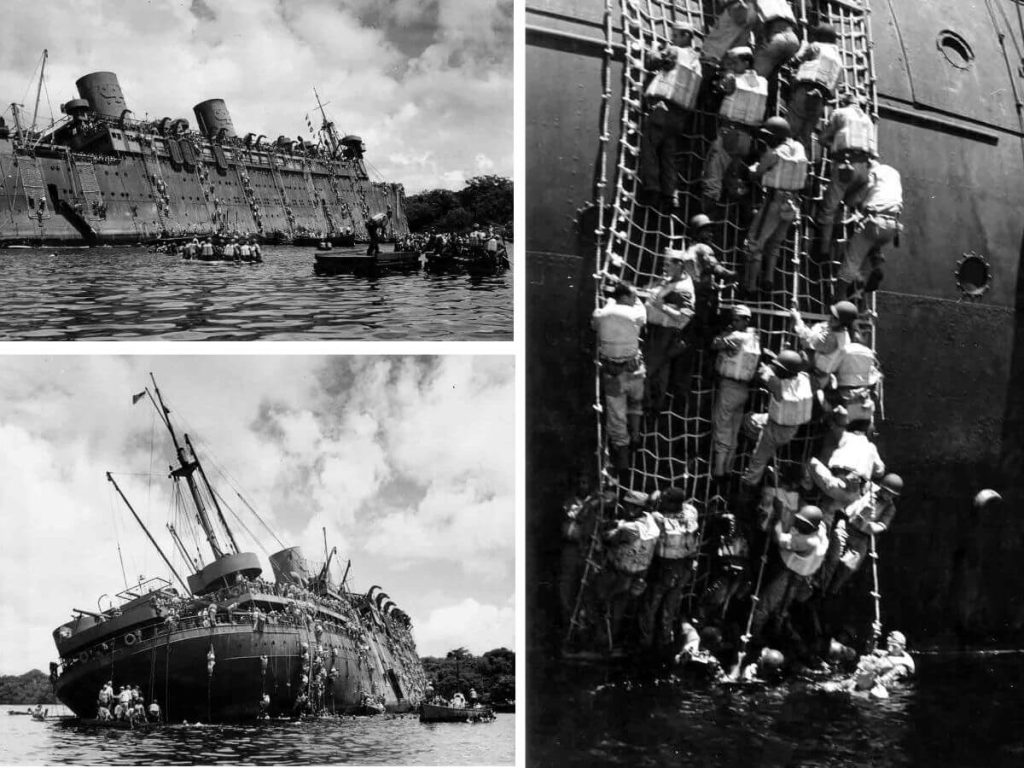
Salvaging The S.S. President Coolidge
After the war big value items such as the propeller blades, oil, brass, electric motors, junction boxes and copper tubing were salvaged from the ship and due to earthquakes in the area some parts have collapsed.
However today the wreck is protected by the Vanuatu Government who restrict any more items from being removed from this historical site. Some pieces of significance being preserved at the South Pacific WWII Museum in Luganville for others to enjoy above the surface.
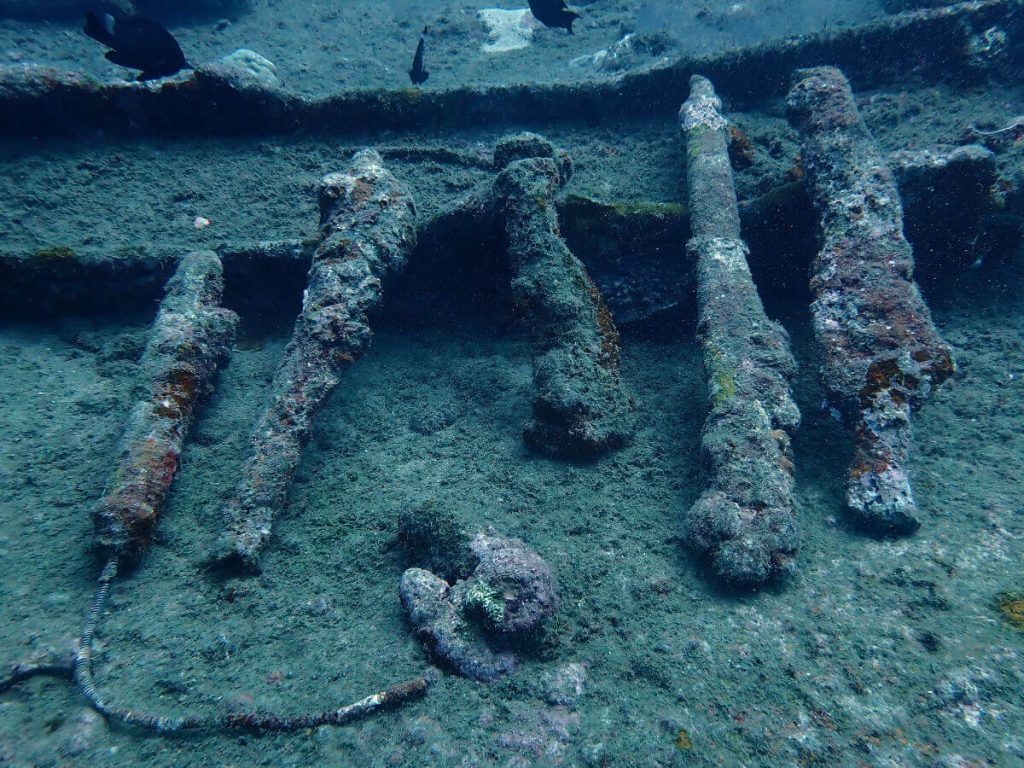
Scuba Diving The S.S. President Coolidge
Although The S.S. President Coolidge no longer cuts through the waves, this beautiful beast of engineering is now cherished and admired by a whole new audience, scuba divers.
With her bow laying at a depth of 21m/69ft and her stern at 73m/240ft she is both a recreational and technical divers dream. Earning titles like the ‘worlds greatest shore dive’ and ‘largest most accessible wreck in the world’. The S.S. President Coolidge deserves to be on every divers bucket list so get in touch with us at Triton Explorers today to plan your trip to Santo!
And for those who would like to delve a little deeper into her history we highly recommend reading this post by OddGodfrey or ‘The Lady & The President’ by Peter Stone.
